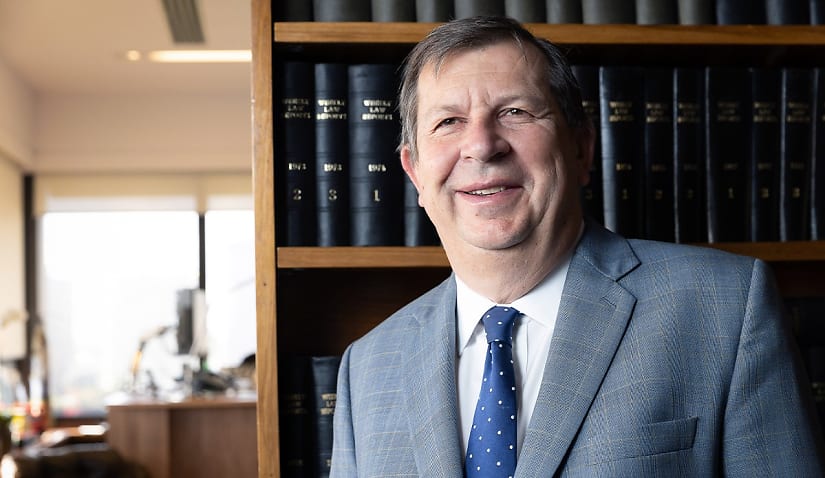NSW’s top judge has renewed his blunt attack on the state of practical legal training, warning that the current system is failing aspiring lawyers, pricing many out of the profession, and is in urgent need of sweeping reform.

Speaking at the Law Society’s Specialist Accreditation Conference yesterday (28 August), Chief Justice Andrew Bell once again voiced his concerns about practical legal training (PLT), delivering a blunt assessment of the system’s failings and flaws.
NSW’s top judge first raised his concerns about the training program at this year’s Law Society Opening of Law Term Dinner, where he slammed its escalating costs and warned that the crippling fees were shutting aspiring lawyers out of the profession.
During his speech, he once again didn’t hold back on the cost of PLT, branding them “wholly unacceptable” and a “real barrier” for those seeking to enter the profession, with programs now costing between “$9,200 to over $13,000”.
Bell CJ unveiled the results of a sweeping survey and consultation conducted on behalf of the Legal Profession Admission Board, exposing systemic failings in how new lawyers are prepared for admission – the very survey he had foreshadowed in his February address.
The survey, which drew more than 4,500 responses from recent graduates and supervisors, painted a damning picture.
His Honour revealed that “only 43 per cent of recent graduate respondents considered assignments were practical and career-relevant, with only 40 per cent considering that methods of teaching were satisfactory”.
Even more striking was the perception of value for money. Bell CJ noted that only a mere “13 per cent of recent graduate respondents considered that the course was reasonably priced”.
The criticism was scathing as His Honour revealed that graduates dismissed PLT as little more than a “box-ticking exercise, lacking deep relevance”, and criticised the course for its “lack of academic rigour”.
Many went further, arguing that “work undertaken during study, such as paralegal work, was reported to be more useful than PLT”.
Another barrier identified by Bell CJ is the 75-day work experience requirement, often unpaid, which graduates described as both “burdensome” and a “barrier to entry” for students who could not afford three-and-a-half months without income.
“The results of the survey suggested that the current PLT offering in New South Wales was, as a general proposition, not properly performing the task for which it was created, that it was too expensive and time-consuming, and did not prepare new lawyers adequately for their work in the profession,” Bell CJ said.
Despite the criticism and widespread dissatisfaction revealed by the survey, Bell CJ highlighted areas of success he has observed when these training offerings are integrated into university undergraduate law degrees.
“There appeared to be far greater satisfaction with PLT which was being provided by two universities which integrate PLT into their undergraduate law degrees, and there is no reason why, under a reimagined PLT offering, such programs could not continue with graduates who had undertaken such courses at the relevant universities being able to proceed directly to admission, as is currently the case,” His Honour noted.
In response to these findings, Bell CJ revealed that the LPAB will release a discussion paper next month, shedding light on potential reforms to PLT. The paper will draw on insights from law firms, public sector bodies, recent PLT graduates, and NSW law schools, offering a roadmap for change in the way new lawyers are trained.
His Honour previewed reforms that would reframe PLT as a three-stage mode of practical training:
First stage – PLT would begin during the law degree, embedding hands-on legal skills into programs and ensuring that degrees meet the “Priestley 11” requirements.
Second stage – The current six-month PLT program would be replaced with a short, intensive “capstone” course lasting two to three weeks. Delivered face-to-face, it would focus on teaching the “minimum common basic skills” essential for practice.
Third stage – A reimagined post-admission PLT would require new lawyers in their first two or three years of practice to complete at least “15 hours of in-person practical legal training each year”, tailored to their specific areas of practice.